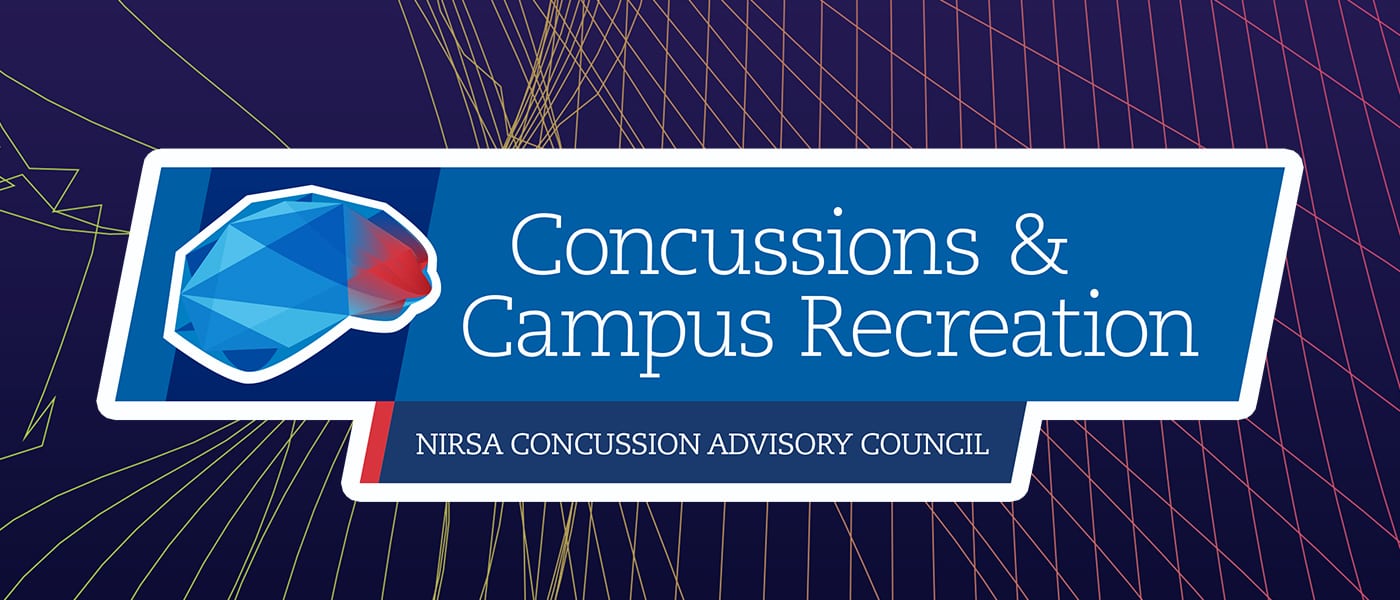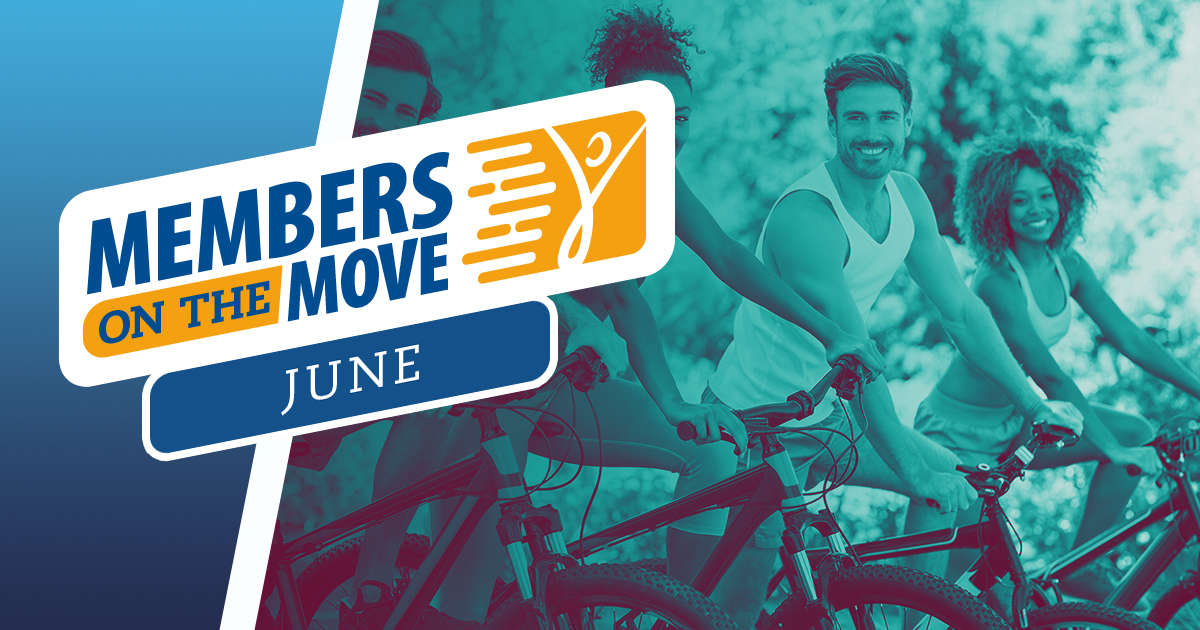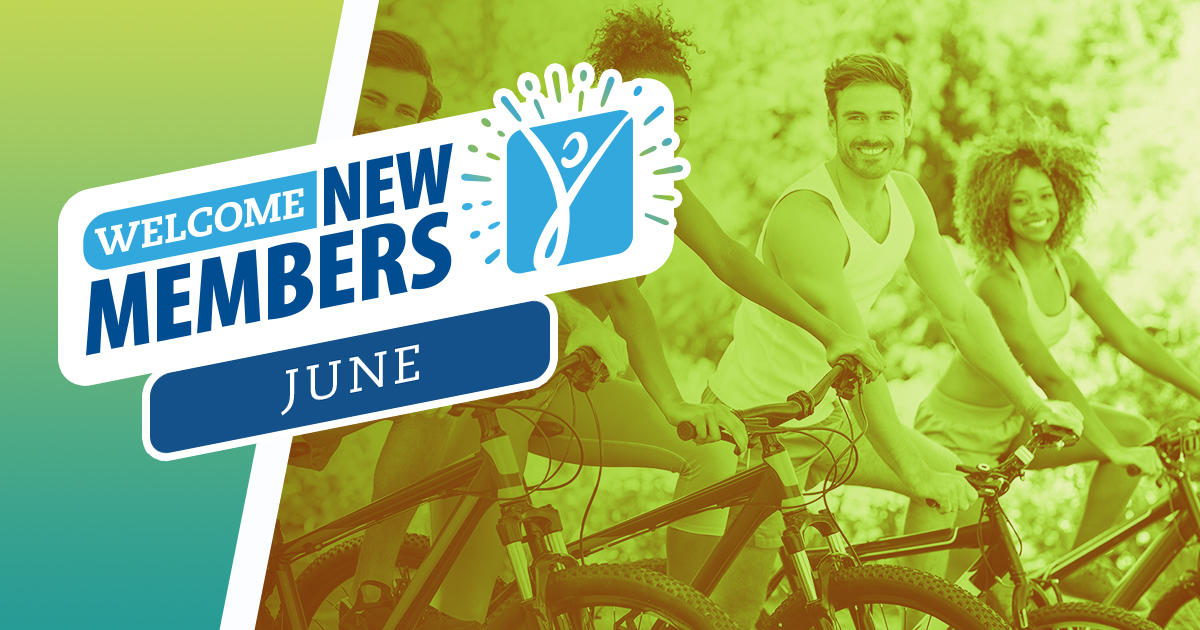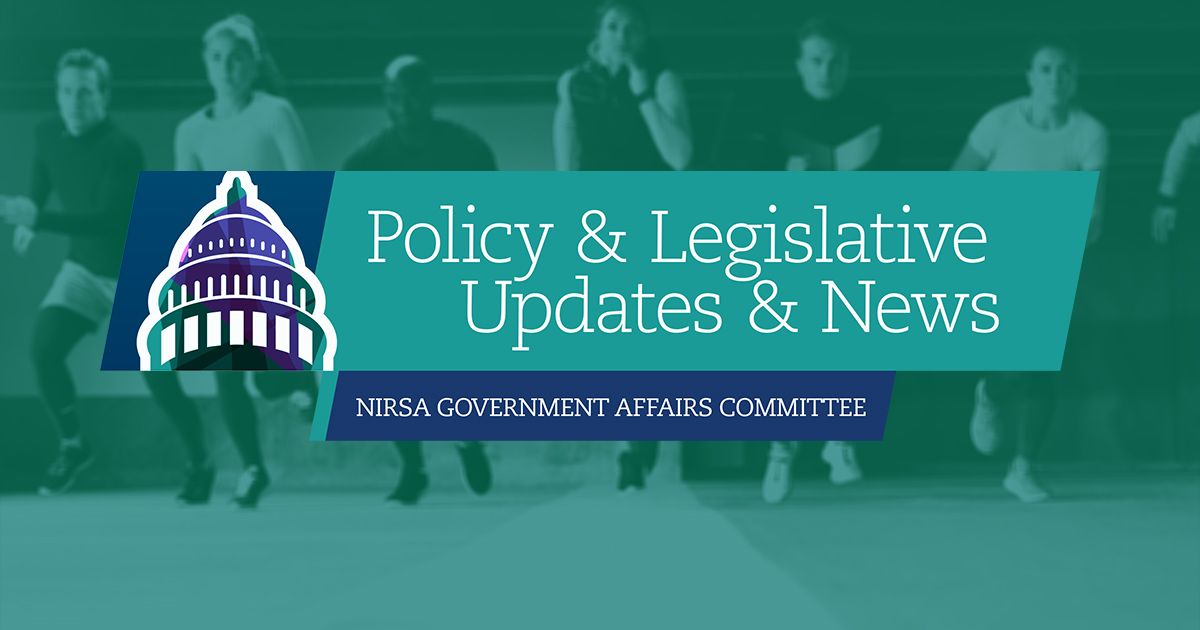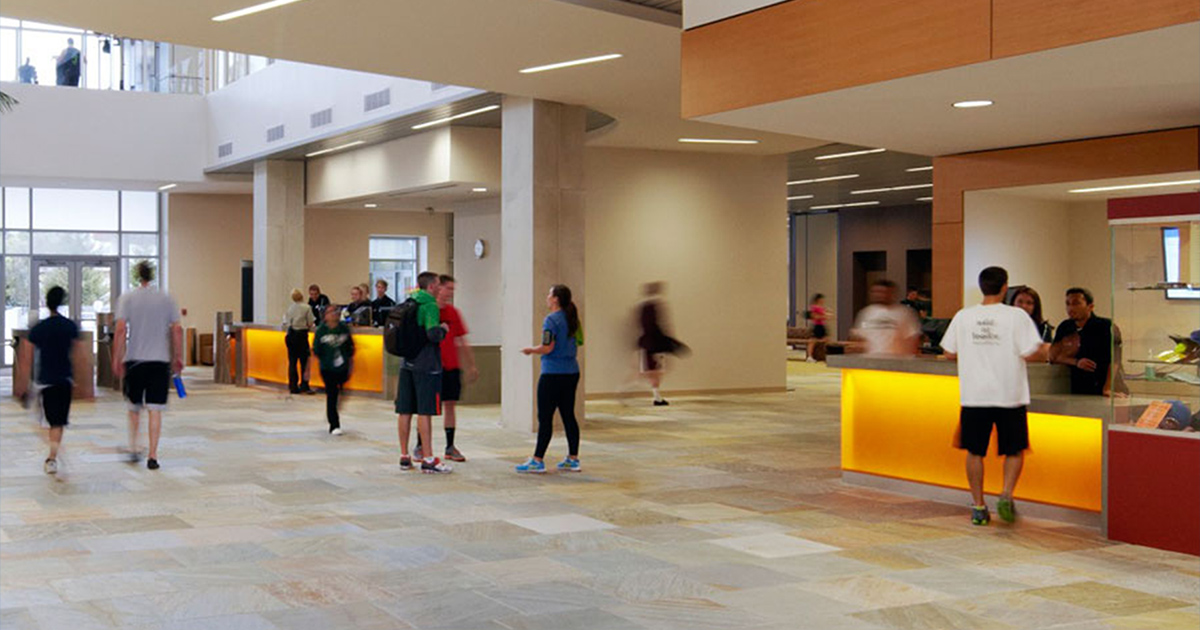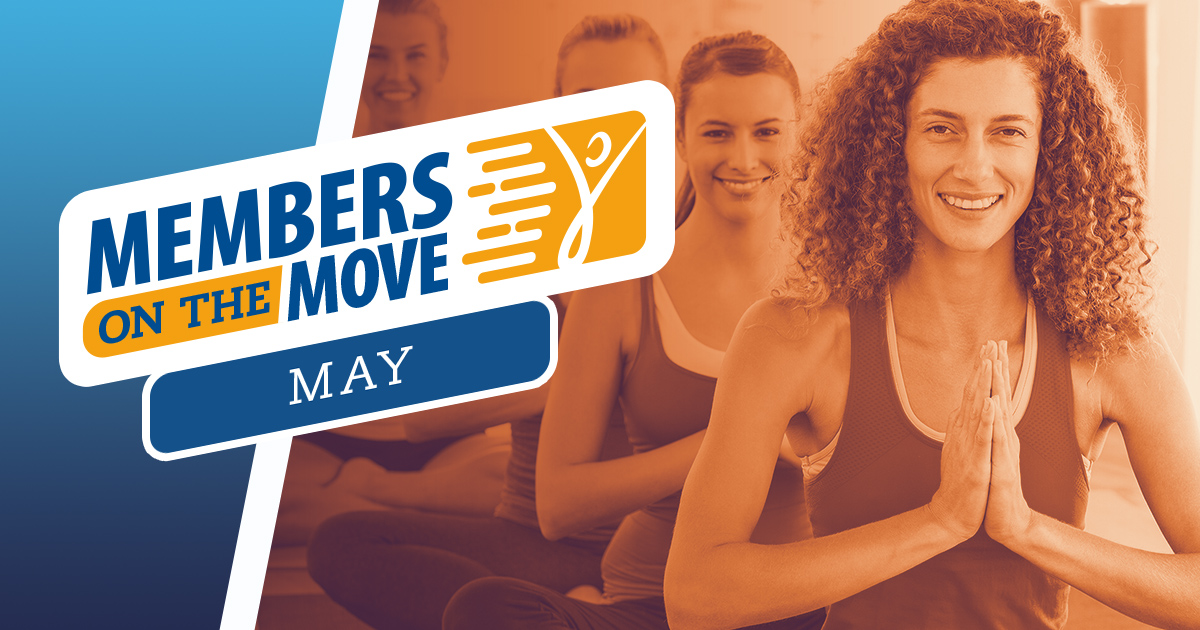Concussions are a hot topic in sports today, and those running rec programs have a duty to make sure their staff are prepared to handle them appropriately; however, knowing exactly how to do that can be difficult. Head injuries aren’t always as easily discernible as broken limbs and dislocated joints.
There are so many different products on the market, including baseline testing products, training programs, sideline evaluation tools, and concussion management apps. Whether you’re at a small school or a large institution, public or private, indoor recreation or outdoor adventure, it can feel a bit overwhelming to sort through the wide variety of options available to ultimately find the right solution for your department to ensure it is doing due diligence to educate and care for concussions that happen in or on your facilities and within the scope of your programs.
Let’s take a look at a few common product categories and some of the products available within those categories.
General concussion training
Concussions are a serious issue in sports and recreation, and it is important that participants, officials, recreation staff members—as well as first aid providers—have a basic understanding of concussions.
There are several concussion training options available, including those from the National Federation of State High School Associations and the U.S. Center for Disease Control’s joint Heads Up program, and NIRSA partner SportRisk.
Each of these training programs provides audiences with basic information about how concussion are caused, what the common signs and symptoms are, what actions are appropriate when a concussion is suspected, and the risks associated with ignoring a concussion or trying to return to play before the brain has fully healed.
NFHS/CDC Heads Up Concussion Training
- Pros: Free and online. Customizable materials. A certificate of completion can be printed or screen captured to prove the class was taken.
- Cons: While they have resources geared for many specific audiences, the college and university recreation audience is not among them.
SportRisk Concussion Training
- Pros: The tool has been developed specifically for the collegiate recreational sports setting. It includes a basic education and awareness training for broad use and a recognition and response training for those with responsibility to respond when concussions are suspected. The package also offers online tracking for administrators.
- Cons: Fee based.
Orcas’ “Brain 101: The Concussion Playbook”
- Pros: Free and online.
- Cons: Very short trainings with limited knowledge gained; also it’s not specific to the collegiate recreation setting.
Given what we now know about concussions and the significant, individual and class-action lawsuits filed against the NFL, NCAA, and school districts across North America, recreation departments should be asking themselves not whether they will be providing concussion training, but which combination of training programs they will use.
Baseline Testing
Concussion-related baseline tests involve assessments done during the pre-season that record an athlete’s concussion history, concussion symptoms, and other conditions that may impact recovery from a concussion. They also test the athlete on measures of concentration, reaction time, and memory. These same assessments are administered following a concussion, and results are compared to the baseline scores. Clinicians can use resulting comparison of scores as one tool to assess concussions and monitor recovery.
- Pros: Baseline tests provide an extra tool for clinicians to use in the assessment and monitoring of concussions.
- Cons: Baseline testing is sophisticated, and tests need to be administered by a trained healthcare professional. The testing environment needs to be quiet and distraction-free. Depending on which test you choose, each test could take approximately 45 minutes to complete. There is a cost associated with most baseline testing programs. Depending on which recommendations are followed, baseline tests may need to be re-administered as often as annually.
While baseline testing provides clinicians with a snapshot of what an athlete’s condition was prior to the injury, this is only one of several tools that can be used to assess a concussion. Even without a baseline test on file, clinicians are able to administer the test post-injury and compare scores to normative data based on thousands of previous test-takers.
Sport Concussion Assessment Tool (SCAT5)
- Pros: Assessment program materials are free, and tests take only about 15 minutes to complete per athlete.
- Cons: Tests have to be done one-on-one with the athlete which takes more time. Also, it’s a paper-based test; there is no electronic or online equivalent. This tool is designed for use by healthcare professionals only; likely most appropriate for schools with athletic trainers on staff.
ImPACT
- Pros: Online program that can test many athletes at the same time. More comprehensive than the other assessments listed here.
- Cons: Fee-based and you need a large computer lab and a quiet space. Computers require the use of a mouse. Tests take around 30 minutes to complete.
Standardized Assessment of Concussion (SAC)
- Pros: The program is free program and takes athletes only roughly 15 minutes to complete.
- Cons: Tests have to be done one-on-one with the athlete, which takes more time. Also, it’s a paper-based test; there is no electronic or online equivalent.
Concussion Evaluation Tools for Use on the Sidelines
There is no single way to recognize, assess, and diagnose a concussion. Many tools for concussion assessment are available, but it can be hard to know which ones may be appropriate for use by rec sports staff.
The Sport Concussion Assessment Tool (SCAT5) was published following the most recent meeting of the Concussion in Sports Group (comprised of the world’s leading concussion experts) and represents a thorough assessment tool for healthcare professionals. But the tool really should not be used by general rec sports staff. At the same meeting, the Concussion in Sports Group developed the Concussion Recognition Tool 5 (CRT5), which is meant for use by lay responders. While not as thorough as the SCAT5, the CRT5 is simple enough for practically anyone to use. The tool focuses on recognizing red flags and when an athlete needs to be referred for further evaluation.
Sport Concussion Assessment Tool (SCAT5)
- Pros: The tool assesses multiple components related to suspected concussion
- Cons: The tool is paper-based. This tool is designed for use by healthcare professionals only; likely most appropriate for schools with athletic trainers on staff.
Concussion Recognition Tool (CRT5)
- Pros: Any trained staff can use the tool.
- Cons: It only assesses two areas of concussion symptoms; it’s more useful as a recognition tools than a diagnostic tool.
Standardized Assessment of Concussion (SAC)
- Pros: This tool is extremely comprehensive for use in the campus recreation setting.
- Cons: It does not include the Glasgow Coma Scale.
Balance Error Scoring System (Modified BESS)
- Pros: Offers practitioners quick recognition techniques which can be done almost anywhere.
- Cons: These tests only assess balance making it more difficult to achieve consistency among athletes.
Conclusion
Concussions are a trending topic from youth sports to professional sports. Students attend our universities to get a college degree and make lifetime memories along the way. Our jobs as recreational sports professionals is to keep our participants safe and help them prepare for life after college. We can’t protect student athletes from getting hurt, but we can provide some tools and trainings to recognize an injury and to get them back safely playing the sports they love.
Take some time this fall to discuss your options and plan with your recreation director, athletic training staff, and health center to see what programs are already in place for varsity athletes and students on campus.
Good luck and stay safe!
Robin Bowman is currently a certified athletic trainer; she can be reached at rrbowman7@gmail.com. Michael Dominguez is currently Sport Club Coordinator at the University of California, Davis; he can be reached at mddominguez@ucdavis.edu. Robin and Michael are both members of NIRSA's Concussion Advisory Council.


